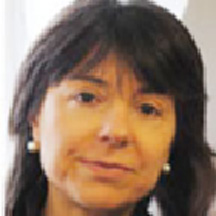This article was received from Project Syndicate, an international not-for-profit association of newspapers dedicated to hosting a global debate on the key issues shaping our world.
Paola Subacchi is Research Director of International Economics at Chatham House, London
By Paola Subacchi

LONDON – Is one of the last bastions of gender inequality in the rich democracies finally starting to crumble? In the past few weeks, Janet Yellen was nominated as the first female chair of the US Federal Reserve Board, and Karnit Flug became the first woman to be appointed Governor of Israel’s central bank. If money is power, then women must no longer be excluded from controlling the supply of it.
Although women do head central banks in 17 emerging markets – including Malaysia, Russia, Argentina, South Africa, Lesotho, and Botswana – they are the exceptions that prove a general rule: women are excluded from the world of monetary policymaking.
Yellen’s appointment is particularly important, because she breaks the glass ceiling in the advanced economies. Until her promotion, no member of the G-7 had a woman heading its central bank.
Moreover, men occupy all 23 seats on the European Central Bank’s (ECB) Governing Council. Since the Bank of England’s Monetary Policy Committee was established in 1997, only three women have been appointed as external members – and no woman has even been nominated since 2002. The Bank of Japan has only one woman on its Policy Board.
Women, nowadays, are more likely to occupy top political jobs. Angela Merkel was recently reelected for a third term as German Chancellor; Britain’s voters elected Margaret Thatcher three times as Prime Minister; and France has had a female prime minister. But no woman has come close to leading these countries’ central banks. Equality seems to have eluded central banks even in gender-conscious Scandinavia. For example, Norway, which has been promoting positive gender discrimination for years and recently elected Erna Solberg as its first female prime minister, has yet to allow a woman to control the purse strings – at either the central bank or the finance ministry, with its powerful sovereign wealth fund.
Recent attempts to compel change have been counter-
productive. In an effort to promote diversity and gender equality in the ECB, the European Parliament in 2012 blocked the appointment of Luxembourg’s Yves Mersch to the bank’s executive board. But MEPs then failed to propose a plausible female alternative, leaving the ECB understaffed for weeks during the eurozone sovereign-debt crisis.
Unsurprisingly, the European Parliament’s handling of Mersch’s appointment was widely ridiculed, and his nomination was eventually confirmed. But many people drew the wrong conclusion from the episode, which they viewed as affirming the idea that competence and experience must always trump ill-conceived ideas about positive discrimination.
If there are no suitable female candidates, it was argued, then the best candidate should prevail, regardless of gender.
But this view misses the point. Why were there no suitable female candidates in the first place? Women hold around 30% of economics doctorates in developed countries, including Europe, and not one of them could be brought forward for the ECB post? The more reasonable conclusion to be drawn from Mersch’s appointment is that no serious effort was made to identify qualified women early on.
On the contrary, female candidates tend simply to be overlooked. This was the case for both Yellen and Flug – until the preferred, male applicants dropped out. Flug was finally offered the top job only in the absence of a male rival, though she was already occupying the position temporarily while the board searched for Stanley Fischer’s successor.
Neither Yellen nor Flug was held back by a lack of academic credentials – both are accomplished scholars – or by the catch-all charge of having “limited experience.” Flug has been the Bank of Israel’s deputy governor since 2011; Yellen has been involved in the Fed system for almost two decades, first in San Francisco and subsequently as Vice Chair of the Fed’s Board of Governors.
If a lack of skills or experience is not preventing women from reaching the summit of monetary policymaking, what is?
The most plausible explanation is that, as organizations with non-elected leaders and limited transparency, central banks tend to function as clubs whose largely male membership hire and promote familiar types; governments usually reinforce this by simply rubber-stamping the banks’ preferred candidate for the top job.
If gender is a proxy for diversity, then central banks fail a basic test of it.
Promoting diversity – not only in terms of gender, but also with respect to age and, in many countries, ethnic background – is a matter of effectiveness as much as a question of social justice. A broader, more transparent recruitment process would reduce groupthink, challenge the status quo, and, one hopes, leave central banks better equipped to handle a financial crisis. The promotion of Yellen and Flug is a good start; now the doors of these fusty male-dominated clubs must be flung wide open.
